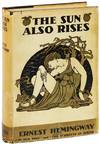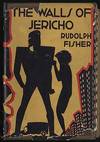
Heroes of European Nations.
- Used
- very good
- Hardcover
- Condition
- Very good
- Seller
-
Scarborough , North Yorkshire, United Kingdom
Payment Methods Accepted
About This Item
Navy cloth binding. Light blue lettering and design. A unique book Written by Robert Hope Moncrieff – Published 1907
Robert Hope Moncrieff (1846 – 1927) was a prolific Scottish author of children's fiction and of Black's Guides. Robert Hope Moncrieff was born on 26 February 1846, the lawful son of George Moncrieff (11 May 1917 – 16 May 1865), a solicitor and his first wife Angela Birch (19 September 1820 – 25 December 1848). The couple had married the previous year in St Brides Church in Liverpool on 2 June 1845. Robert was quickly followed by a brother, John Forbes (5 July 1847 – 7 March 1927), and a sister, Angela Mary (27 November 1848 – 8 March 1864). Moncrieff's mother, Angela, died of childbed fever four weeks after the birth of Angela Mary. Moncrieff was under three. His father married a second time on 27 June 1854 to Maria Wilks Williamson Rodgers (1830 – 30 March 1859) in Kilkenny, Ireland. The family now lived at No 7, Atholl Crescent in Perth. Maria gave George three more children: George Henry (2 November 1855 – 23 February 1947); Francis Edward (24 March 1857 – 7 January 1884); and Henrietta (14 June 1858 – 30 April 1859), who died in infancy. Moncrieff's stepmother, Maria, died when he was just 13, and his father married again before he was 15. His third wife was Isabella Roy (29 October 1828 – 18 January 1879) whom he married on 16 January 1861 in 2, Atholl Crescent. Perth, Scotland. Her father was not a soldier, but the Captain of a ship trading in Asia with the permission of the East India Company. Moncrieff and his brother were in boarding school by the time their father married for the third time. The 1861 Census shows both Moncrieff (15) and his brother John (13) boarding at the Circus Place School in Edinburgh. This was a highly regarded school which prepared pupils for the Edinburgh Academy. Moncrieff went on to attend the Edinburgh Academy and then the University of Edinburgh. Moncrieff's father died in 1865, four years after his third marriage. when Moncrieff was 19. Moncrieff wrote nearly fifty years later that his mother had died before he knew her and that: my father also was taken too soon, leaving me precociously independent. Not one of his father's three marriages lasted five years, all ending prematurely with the death of either wife or husband. Moncrieff himself never married. Before he was out of his teens, Moncrieff had written and made money by a real book. While he attended the University of Edinburgh he wrote A book about Dominies (1867), Dominies being a term used for schoolmasters in Scotland. This was taken by a publisher, who published it at his own expense with a promise of profit to the author, which proved rather a mirage in the cold light of publishing accounts. It was published anonymously with no author's name given. The book was well reviewed and went into several editions. Moncrieff followed this up with A Book About Boys, (1868) adopting his pseudonym Ascott R. Hope for the first time. Moncrieff was ashamed of some of his early books and went to some expense to withdraw them from circulation. Moncrieff says that he had have made awkward attempts at more than one handicraft, with the view of gathering straw for literary bricks. He was said to have taken up teaching briefly more with the purpose of studying schoolboys and their ways than to making it a profession. Moncrieff travelled extensively. Even his census returns in the UK show how much he bounced around:
- 1851 – Living with his widowed father and two siblings in Perth. 5 years old.
- 1861 – At the Circus Place School in Edinburgh with his brother John.
- 1871 – An assistant master at Christ College, Brecon in Wales.
- 1881 – Boarding at 8, Victoria Grove, in Kensington, London. Profession now is Author.
- 1891 – Boarding at Hillside Boarding Lodge in Ventnoron the Isle of Wight. Profession is Author. The 13th edition of Black's Guide to the Isle of Wight, edited by Moncrieff, was published in 1895.
- 1901 – Now 55 years old. Moncrieff was no longer boarding, but was at the head of his own establishment at 85 Munster Road in Fulham, London. No relatives in the house, but the house also holds his 60-year-old housekeeper and her adult daughter. The electoral register show that he was still there in 1907.
- 1911 – Only occupant of 5 Chandos Road, Cricklewood, London, apart from a 52-year-old housekeeper.
- 1927 – On his death at 81 years-of-age he was living at 16a Addison Gardens, Kensington, London.
Moncrieff not only travelled the whole of Great Britain, but he also travelled internationally. He wrote: It has been by lot to be a good deal about the world from an early age. After a boyish visit to Paris, my travels began with a cruise in the Mediterranean and a stay in Italy, still heaving from Garibaldi's exploits. Moncrieff travelled and visited four continents. He even tried his hand at farming in Canada, but soon abandoned it. All of his travels contributed not only to the background for his books, but also supported his books on geography and history. Moncrieff suffered from short-sightedness, and this led him to favour occupations such as walking and riding. And these leisurely pursuits allowed him to make observations that he made use of when writing on topographical topics. His study of the geography of the world, The world of to-day: a survey of the lands and peoples of the globe as seen in travel and commerce (1905) took him five years, and was updated every two years or so. Moncrieff wrote ever word of the six volumes, bar a single page. Moncrieff was a member of first the Savile and later of the Athenaeum. He was of a kindly nature and always ready to do good to others, but in a discreet way. He wrote that his work seldom brought him into contact with fellow authors, and that still less had he cultivated what is called smart society. His view of the world's affairs was mainly that of a looker-on. He wrote: I have lived my life in my own way, and that his writing was the sum of his accomplishments. Moncrieff died at Eltham, London, England on 10 August 1927. He was living at 16a Addison Gardens in Kensington, London at the time. He left an estate valued at £11,482 14s 6d. His stepbrother George survived him by 20 years.
Black's Guides were travel guidebooks published by the Adam and Charles Black firm of Edinburgh (later London) beginning in 1839. The series' style tended towards the "colloquial, with fewer cultural pretensions" than its leading competitor Baedeker Guides. Contributors included David T. Ansted, Charles Bertram Black, and A.R. Hope Moncrieff. Baedeker Guides are travel guide books published by the Karl Baedeker firm of Germany beginning in the 1830s.
Reviews
(Log in or Create an Account first!)
Details
- Bookseller
- Martin Frost
(GB)
- Bookseller's Inventory #
- FB705 /4A
- Title
- Heroes of European Nations.
- Format/Binding
- Cloth binding
- Book Condition
- Used - Very good
- Quantity Available
- 1
- Binding
- Hardcover
- Publisher
- Blackie & Son.
- Place of Publication
- London
- Date Published
- 1907
- Size
- 13 x19 x2cm
- Weight
- 0.00 lbs
- Note
- May be a multi-volume set and require additional postage.
Terms of Sale
Martin Frost
About the Seller
Martin Frost
About Martin Frost
Glossary
Some terminology that may be used in this description includes:
- Cloth
- "Cloth-bound" generally refers to a hardcover book with cloth covering the outside of the book covers. The cloth is stretched...
Also Recommended
-

Save 10% on every purchase!
Join the Bibliophiles’ Club and start saving 10% on every book.
$29.95 / Year









